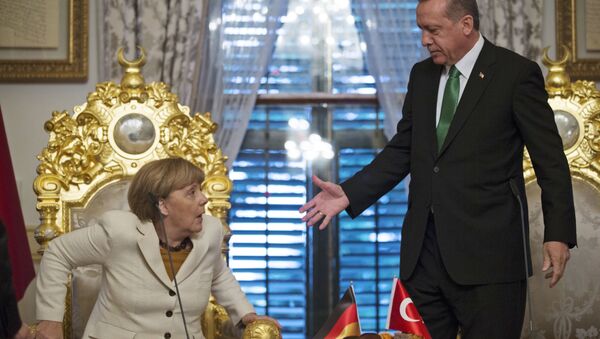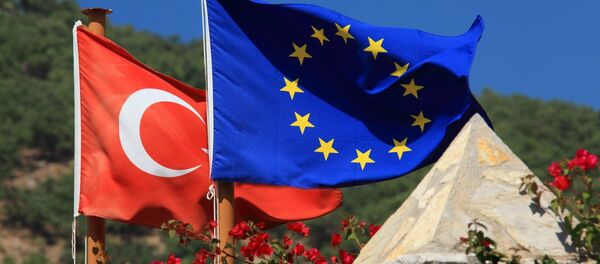According to some media reports, the German delegation was warmly welcomed in the country, but Neu argues that this doesn't much correspond with reality.
"I am not in such a euphoric mood, as my colleagues. I can't say we felt very welcome. We actually expected that we would meet with government officials, but the meeting was rejected by Ankara. We were told that most of what we can expect is a meeting with members of the parliamentary committee on defense. It doesn't look like an open culture of hospitality," Neu told Sputnik.
In June, Ankara restricted a delegation of German lawmakers' access to the airbase after the German parliament adopted a resolution recognizing the early 20th century massacre of ethnic Armenians by the Ottoman Empire as genocide.
Earlier, a representative of the Turkish parliamentary committee on defense warned members of the German Bundestag against raising the Armenian issue again, a statement that clearly sounded as a kind of a threat, the politician noted.
"None of us came back to this subject, because we had a number of other issues to do […]. But this statement clearly sounded like a certain threat. In any case, Turkey strongly opposed Germany's involvement in the Armenian issue," Neu said.
According to the politician, the German side was too cautious during its visit to Turkey. It didn't focus on the human rights violations in the country and was more attuned to reaching a consensus rather than sharing its arguments.
"They wanted to achieve a thaw first, and then see how further debate develops. In my view, such position is too defensive. The Turkish side, by contrast, did not hesitate to very clearly formulate its views," Neu said.
Many experts believe that Germany and the EU, have made themselves dependent on the goodwill of Turkey. In Spring 2016, the EU and Ankara signed a joint action plan on refugees providing, inter alia, that Turkey would receive three billion euros in return for supplying Syrian refugees and ensuring that none of them come to Europe. Ankara repeatedly threatened to break the deal if the EU doesn't fulfill its obligations, including the negotiations on Turkey's possible accession to the EU.


